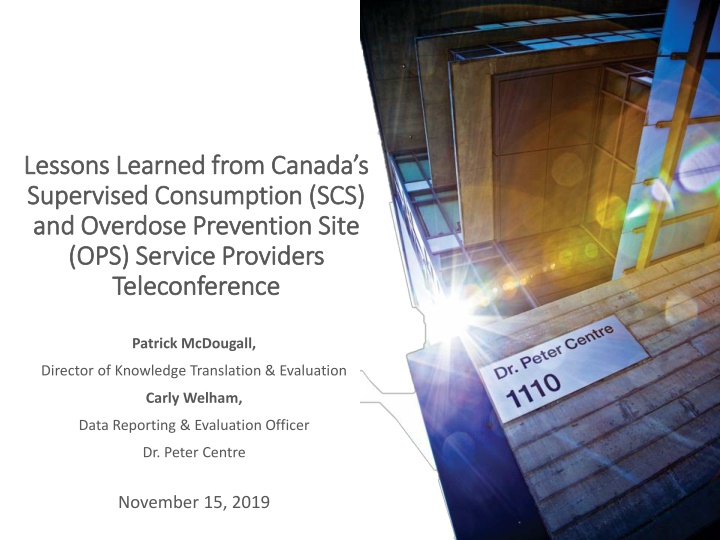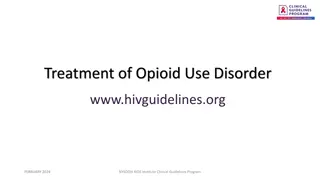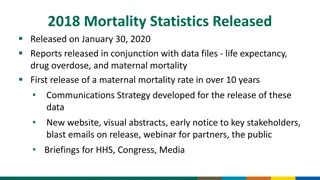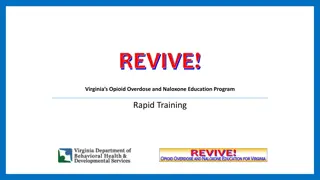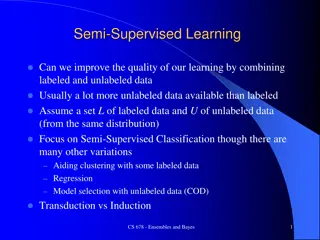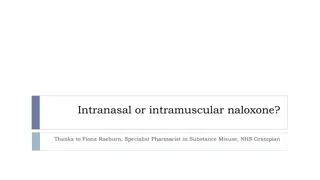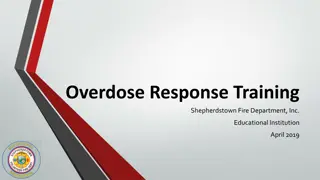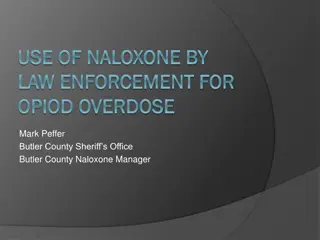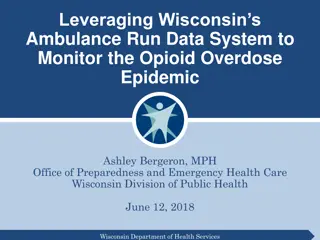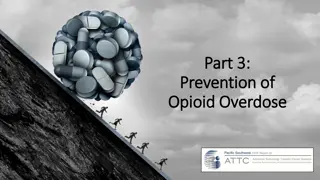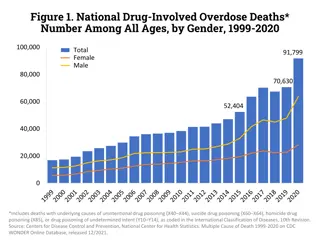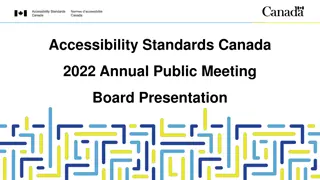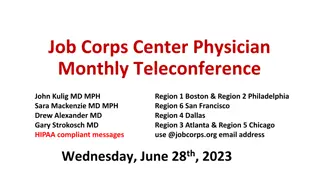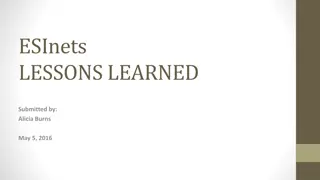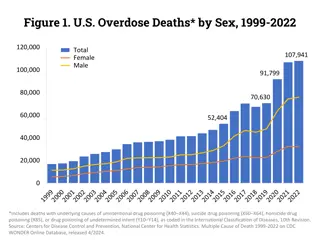Lessons Learned from Canada's Supervised Consumption and Overdose Prevention Sites
This presentation discusses key insights and experiences shared by service providers of Supervised Consumption and Overdose Prevention Sites in Canada. Topics include background, growth, milestones, and key themes such as operational considerations and community engagement.
Download Presentation

Please find below an Image/Link to download the presentation.
The content on the website is provided AS IS for your information and personal use only. It may not be sold, licensed, or shared on other websites without obtaining consent from the author.If you encounter any issues during the download, it is possible that the publisher has removed the file from their server.
You are allowed to download the files provided on this website for personal or commercial use, subject to the condition that they are used lawfully. All files are the property of their respective owners.
The content on the website is provided AS IS for your information and personal use only. It may not be sold, licensed, or shared on other websites without obtaining consent from the author.
E N D
Presentation Transcript
Lessons Learned from Canadas Lessons Learned from Canada s Supervised Consumption (SCS) Supervised Consumption (SCS) and and Overdose Prevention Site Overdose Prevention Site (OPS) Service Providers (OPS) Service Providers Teleconference Teleconference Patrick McDougall, Director of Knowledge Translation & Evaluation Carly Welham, Data Reporting & Evaluation Officer Dr. Peter Centre November 15, 2019
Welcome & Agenda Background of the SCS/OPS Service Providers Teleconference Evolution Summary of key themes that emerged
Background Public Health Agency of Canada funded project Submitted in 2016 Started in 2017 Capacity building for 12 agencies starting supervised consumption services (SCS): 4 in year 1; 2 more each subsequent year Started a bilingual teleconference in Sept 2017 Current and prospective SCS service providers starting with 14 people from Vancouver, Surrey, Montreal, and Toronto
Milestones Along the Way Dedicated discussions on iOAT Teleconference discussions begin to focus on specific topics Presentations on impact of peer assistance Many sites share the desire to offer additional services (e.g., peer assistance) and scale up those offered Focused presentations on housing related topics (e.g., Housing Overdose Prevention Strategies, Brave Button) Shift in Delivery Scaling up services Community Engagement Tailoring Discussion Teleconference Starts 2019 2019 2017 2017 2018 2018 The first few teleconferences explore numerous topics related to service delivery in a broad manner Re-enforcing the importance of community engagement as efforts from those opposed to SCS/OPS emerge Decision made to move forward with targeted videocalls (supplemented by quarterly teleconferences) Detailed presentation on washroom assessment and overdose prevention
Key Themes Expanding Models Operational Considerations Navigating Regulatory Considerations Community Engagement Supporting Staff Resiliency
Expanding Models Incorporating SCS/OPS in housing settings Assisted injection Inhalation services Quality drug testing 24-hour services Women-only and/or trans-only locations or hours Allowances for splitting and sharing of drugs Intravenous opioid agonist therapy (iOAT) Access to low barrier safe supply Decriminalization
Operational Considerations Strategies to prevent wait times Time limits Policies for personal belongings Clear signage Consistent policies and procedures People using outside facilities or in the washrooms Complex overdoses
Navigating Regulatory Considerations Dependence on political climate federally, provincially, municipally Exemption Process Regulations limiting: Assisted injection Splitting or sharing of drugs Hiring of staff with a criminal record Engaging other partners
Community Engagement Community pushback has included: Negative media Court challenges Needing to relocate Service providers strategies have included: Engaging stakeholders and the media Hosting tours and engaging community consultations Proactive measures (outreach workers) Shortening wait times
Supporting Staff Resiliency Processes to support wellbeing: Debriefing Education and workshops Counselling Capacity building opportunities: Skill building and support Peer employee networks Job security
Acknowledgements Thank you! We would like to thank and acknowledge the contribution of everyone who has participated in the teleconference. The teleconference has been made possible through a financial contribution from the Public Health Agency of Canada. The views expressed herein do not necessarily represent the views of the Public Health Agency of Canada.
